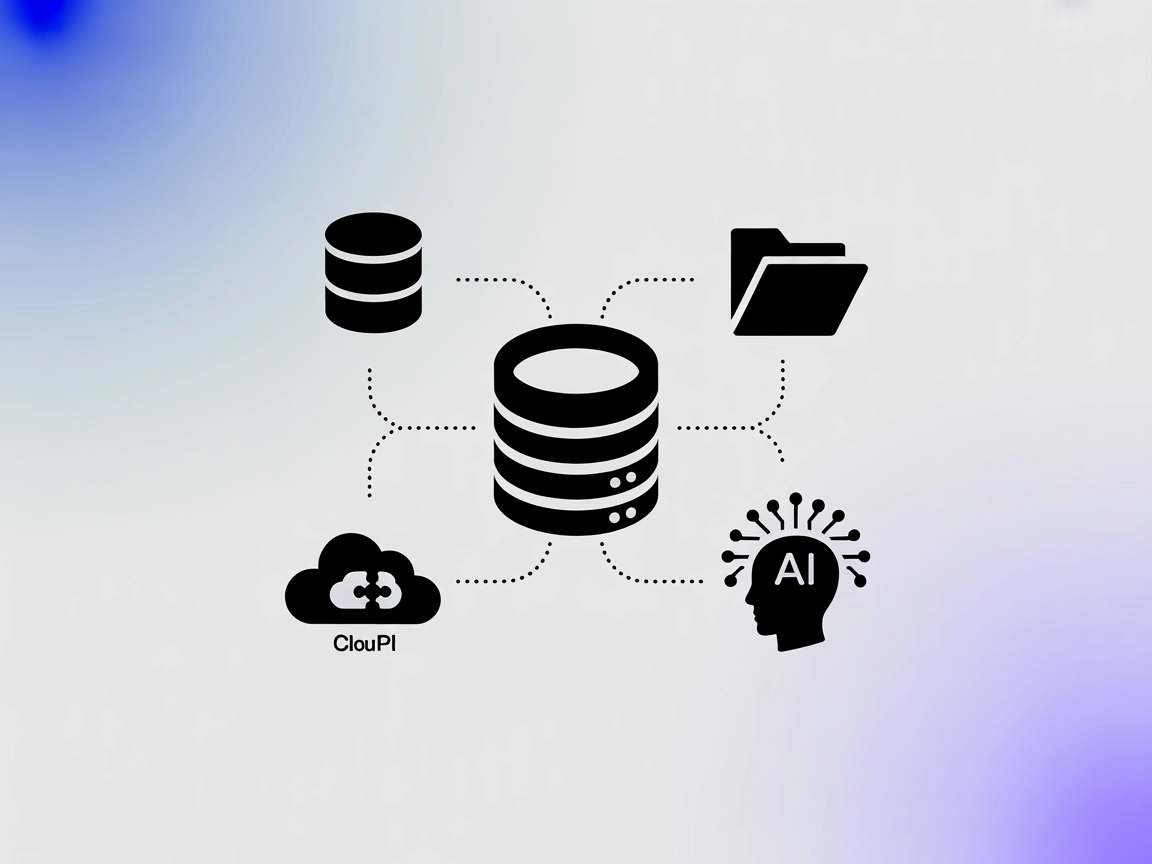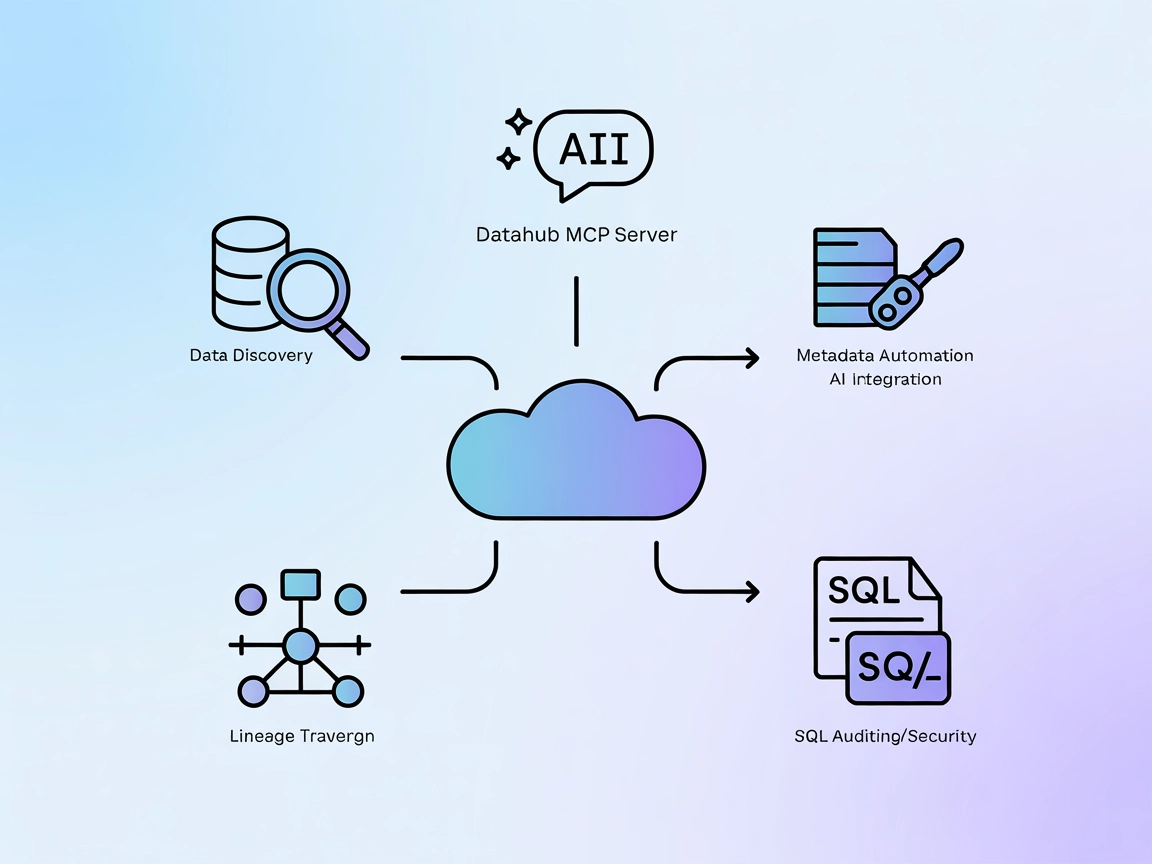
Model Context Protocol (MCP) Server
The Model Context Protocol (MCP) Server bridges AI assistants with external data sources, APIs, and services, enabling streamlined integration of complex workfl...

Seamlessly connect AI assistants to Prometheus for real-time monitoring, automated analytics, and DevOps insights with the Prometheus MCP Server.
FlowHunt provides an additional security layer between your internal systems and AI tools, giving you granular control over which tools are accessible from your MCP servers. MCP servers hosted in our infrastructure can be seamlessly integrated with FlowHunt's chatbot as well as popular AI platforms like ChatGPT, Claude, and various AI editors.
The Prometheus MCP Server is a Model Context Protocol (MCP) implementation that enables AI assistants to interact with Prometheus metrics using standardized interfaces. By acting as a bridge between AI agents and Prometheus, it allows for seamless execution of PromQL queries, discovery and exploration of metric data, and provides direct access to time-series analytics. This empowers developers and AI tools to automate monitoring, analyze infrastructure health, and gain operational insights without manual data retrieval. Key features include metric listing, metadata access, support for both instant and range queries, and configurable authentication (basic auth or bearer token). The server is also containerized for easy deployment and can be flexibly integrated with various AI development workflows.
No information about prompt templates is provided in the repository.
No explicit resources (as defined by MCP) are listed in the repository.
No specific instructions are provided for Windsurf in the repository.
PROMETHEUS_URL, credentials).mcpServers object:{
"mcpServers": {
"prometheus": {
"command": "uv",
"args": [
"--directory",
"<full path to prometheus-mcp-server directory>",
"run",
"src/prometheus_mcp_server/main.py"
],
"env": {
"PROMETHEUS_URL": "http://your-prometheus-server:9090",
"PROMETHEUS_USERNAME": "your_username",
"PROMETHEUS_PASSWORD": "your_password"
}
}
}
}
Note: If you see Error: spawn uv ENOENT, specify the full path to uv or set the environment variable NO_UV=1 in the configuration.
No specific instructions are provided for Cursor in the repository.
No specific instructions are provided for Cline in the repository.
Securing API Keys
Sensitive values such as API keys, usernames, and passwords should be set via environment variables.
Example (in JSON configuration):
"env": {
"PROMETHEUS_URL": "http://your-prometheus-server:9090",
"PROMETHEUS_USERNAME": "your_username",
"PROMETHEUS_PASSWORD": "your_password"
}
Using MCP in FlowHunt
To integrate MCP servers into your FlowHunt workflow, start by adding the MCP component to your flow and connecting it to your AI agent:

Click on the MCP component to open the configuration panel. In the system MCP configuration section, insert your MCP server details using this JSON format:
{
"prometheus": {
"transport": "streamable_http",
"url": "https://yourmcpserver.example/pathtothemcp/url"
}
}
Once configured, the AI agent is now able to use this MCP as a tool with access to all its functions and capabilities. Remember to change “prometheus” to whatever the actual name of your MCP server is and replace the URL with your own MCP server URL.
| Section | Availability | Details/Notes |
|---|---|---|
| Overview | ✅ | Prometheus MCP Server enables PromQL queries and analytics |
| List of Prompts | ⛔ | No prompt templates listed |
| List of Resources | ⛔ | No explicit MCP resources described |
| List of Tools | ✅ | PromQL queries, metric listing, metadata, instant/range queries |
| Securing API Keys | ✅ | Environment variable usage detailed |
| Sampling Support (less important in evaluation) | ⛔ | Not specified |
Based on the above, Prometheus MCP Server offers strong tool integration and clear API key security. Some advanced MCP features (like prompts, explicit resources, sampling, and roots) are not documented or implemented.
The Prometheus MCP Server scores well for core MCP tool support and practical integration, but lacks documentation or implementation for prompts, resources, and advanced MCP features. It is reliable for metric analysis but not a full-featured MCP example. Score: 6/10.
| Has a LICENSE | ✅ (MIT) |
|---|---|
| Has at least one tool | ✅ |
| Number of Forks | 22 |
| Number of Stars | 113 |
The Prometheus MCP Server is a Model Context Protocol implementation that lets AI assistants connect to and interact with Prometheus metrics using standardized tools. It supports PromQL queries, metric discovery, metadata retrieval, and time-series analytics to automate monitoring and DevOps workflows.
It enables direct execution of PromQL queries, listing of available metrics, fetching of detailed metric metadata, and viewing of both instant and range query results for time-series data.
Key use cases include automated infrastructure monitoring, DevOps analytics, incident triage, AI-driven dashboard generation, and security or compliance auditing—all via AI assistants connected to Prometheus.
Sensitive values such as Prometheus URLs, usernames, and passwords should be set using environment variables in your server configuration, reducing risk of accidental exposure.
No, the current implementation does not document prompt templates or explicit MCP resources. Its strength is in tool integration for metric analysis.
Add the MCP component to your flow, open its configuration, and insert your MCP server details using the provided JSON format. This allows your AI agent to access all Prometheus MCP functions programmatically.
Empower your AI agents to query, analyze, and automate infrastructure monitoring using the Prometheus MCP Server. Try it in FlowHunt or book a demo to see it in action.

The Model Context Protocol (MCP) Server bridges AI assistants with external data sources, APIs, and services, enabling streamlined integration of complex workfl...

The Metoro MCP Server bridges AI agents with external data sources, APIs, and services, enabling FlowHunt users to automate workflows, standardize integrations,...

The DataHub MCP Server bridges FlowHunt AI agents with the DataHub metadata platform, enabling advanced data discovery, lineage analysis, automated metadata ret...
Cookie Consent
We use cookies to enhance your browsing experience and analyze our traffic. See our privacy policy.